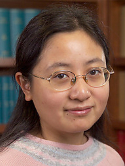Treatment outcomes in completely resected stage i to stage iv uterine carcinosarcoma with rhabdomyosarcoma differentiation Journal Article
| Authors: | Makker, V.; Kravetz, S. J.; Gallagher, J.; Orodel, O. P.; Zhou, Q.; Iasonos, A.; DeLair, D.; Aghajanian, C.; Hensley, M. L. |
| Article Title: | Treatment outcomes in completely resected stage i to stage iv uterine carcinosarcoma with rhabdomyosarcoma differentiation |
| Abstract: | Objective: To evaluate overall survival (OS) and progression-free survival (PFS) after adjuvant therapy in stage I to stage IV uterine carcinosarcoma with rhabdomyosarcoma differentiation. Methods: Memorial Sloan-Kettering Cancer Center medical records from 1990 to 2012 were reviewed. Patients who received chemotherapy with or without radiation therapy (RT), or RT alone, for completely resected stage I to stage IV uterine carcinosarcoma with rhabdomyosarcoma differentiation were included. Results: Of 53 patients, International Federation of Gynecology and Obstetrics stage distributionwas as follows: I, 13 (24.5%); II, 8 (15.1%); III, 13 (24.5%); and IV, 19 (35.9%). Forty-one (77.4%) of 53 patients received adjuvant chemotherapy, and 34% of the patients who received chemotherapy also received pelvic RT or intravaginal brachytherapy (IVRT). Twelve (22.6%) of the 53 patients received only pelvic RT with/without IVRT. Paclitaxel-carboplatin was the most commonly used adjuvant chemotherapy treatment. The median PFS for the entire cohort was 13.4months (95% confidence interval [CI], 10.5-17.0). ThemedianOS for the entire cohort was 23.0 months (95% CI, 16.9-34.3). The median PFS periods by stage were 15.9 months for stages I/II versus 11.2 months for stages III/IV (P = 0.012). Median OS was not reached in the early-stage cohort. The median OS for the late-stage cohort was 20.9 months (P = 0.004). The median PFS periods by treatment were 10.4 months for pelvic RTwith/without IVRT group versus 13.1 months for chemotherapy with/without pelvic RT with/without IVRT group (P = 0.498). The median OS periods by treatment were 23.6 months for chemotherapywith/ without pelvic RTwith/without IVRT group versus 16.9months for pelvic RT with/without IVRT group (P = 0.501). Conclusion: The results suggest that chemotherapy alone or in combination with RT is associated with longer PFS and OS compared to RT alone. Only the stage of disease significantly affected PFS and OS. Copyright © 2013 by IGCS and ESGO. |
| Keywords: | adult; treatment outcome; aged; cancer surgery; major clinical study; overall survival; fatigue; neutropenia; cisplatin; doxorubicin; cancer combination chemotherapy; diarrhea; multimodality cancer therapy; skin toxicity; paclitaxel; cancer adjuvant therapy; cancer radiotherapy; chemotherapy; carboplatin; progression free survival; multiple cycle treatment; radiation; peripheral neuropathy; medical record review; ifosfamide; docetaxel; fever; clinical evaluation; brachytherapy; tamoxifen; mesna; rhabdomyosarcoma; hand foot syndrome; uterus carcinoma; carcinosarcoma; adjuvant treatment; completely resected; uterine carcinosarcoma; human; female; priority journal; article |
| Journal Title: | International Journal of Gynecological Cancer |
| Volume: | 23 |
| Issue: | 9 |
| ISSN: | 1048-891X |
| Publisher: | Lippincott Williams & Wilkins |
| Date Published: | 2013-11-01 |
| Start Page: | 1635 |
| End Page: | 1641 |
| Language: | English |
| DOI: | 10.1097/igc.0000000000000001 |
| PROVIDER: | scopus |
| PUBMED: | 24172099 |
| DOI/URL: | |
| Notes: | Export Date: 2 January 2014 -- CODEN: IJGCE -- Source: Scopus |
Altmetric
Citation Impact
BMJ Impact Analytics
MSK Authors
Related MSK Work









